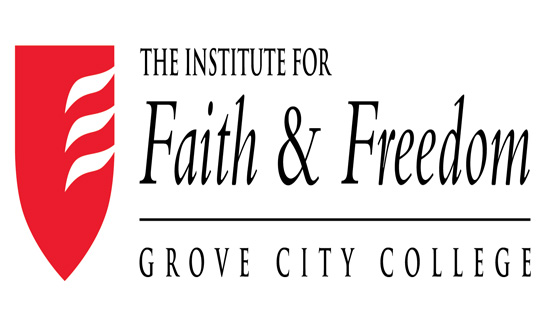Silly Syllogisms and Serious Politics
Syllogisms are mesmerizing little mind games; the sort lonely logicians might play on long, languid evenings. The rules are simple: combine a major premise with a minor premise and draw a conclusion. Most of us have bumped into syllogistic reasoning somewhere in our educational odysseys. You might remember: all men are mortal (major premise); Socrates is a man (minor premise); therefore, Socrates is mortal (conclusion).
Recently some logicians, doubling as political pundits, have been playing a syllogistic game in the impending Pennsylvania gubernatorial contest. Since the state is Pennsylvania and the topic is politics, there is naturally a Democratic version and a Republican version.
The Democratic syllogism goes like this: Pennsylvania has never elected an attorney general as governor; Tom Corbett is attorney general; therefore, Tom Corbett ain’t going to be elected governor in November.
Not surprisingly, the Republican syllogism is a little different: no party has won the governor’s office three times in a row in modern times; Democrats in November are running for a third consecutive term; therefore, Democratic candidate Dan Onorato ain’t going to be elected governor in November.
Now, two things are readily apparent. One is that both parties are right on the facts, viz., no elected attorney general has ever been chosen governor and no party has won three consecutive gubernatorial terms since 1954.
The other is that Pennsylvania’s political logicians aren’t very logical. While their facts are solid, their conclusion isn’t. Obviously both candidates can’t lose. One of them—either Corbett or Onorato—will be elected in November, and Pennsylvania next January will swear in either an attorney general or someone who has won a third term for his party.
Who wins, of course, has enormous significance for the state. The opposing candidates offer dramatically contrasting visions, have vividly different personalities, and lead political parties with strikingly different philosophies of governing. In short, it matters whose syllogism is right.
But beyond that, who’s right matters for a very different reason, a reason that might be as consequential as the election itself. That’s because this election finds the state’s political parties at an historic crossroad—one that will likely determine the character of Pennsylvania politics long after the election itself has faded from memory.
If Corbett and the Republicans win, it means that competitive two-party politics remain alive and well in Pennsylvania, that the gubernatorial seat continues to switch at regular eight year intervals, and that a new political force, the crusading state prosecutor, will become a major force in state politics.
None of these consequences are trivial. Two-party competition has been a feature—some might say "the feature"—of modern state politics. A one-party state will be perceived as good by some and bad by others. But good or bad such a trend would radically transform state politics.
Similarly, Corbett’s election would unleash a powerful new political force in state politics—the Office of Attorney General. Heretofore, that office has been an electoral dead end. But should Corbett win the governorship, the Office of Attorney General will become a major launching pad for future gubernatorial aspirants.
Equally important, a Corbett win means that aggressive corruption probes will become a pervasive presence in state politics. Indeed, Corbett’s precedent breaking use of his office to pursue statewide corruption probes will be seen as the catalyst that sparked his gubernatorial bid. Future attorneys general are almost certain to follow Corbett’s lead, pursuing high profile investigations and prosecutions of public officials in the state.
A recent Supreme Court ruling limiting the scope of federal prosecutors in corruption cases is likely to accelerate this trend. Increasingly, attorneys general may become not only the "new sheriff in town" but also the only sheriff in town.
An Onorato victory, on the other hand, pushes Pennsylvania more firmly into the Democratic ranks than any time in modern history. Five straight Democratic presidential wins in the state since 1988, together with the massive voter registration edge enjoyed by Democrats, only reinforces this conclusion. Onorato winning also ends Pennsylvania’s vaunted "eight-year cycle" and raises seriously the question whether Republicans can compete statewide in Pennsylvania. In fact, it would raise the question whether Pennsylvania remains a competitive two-party state.
The last point bears some elaboration. Pennsylvania was a Republican state from the end of the Civil War until the 1930’s, it has been a competitive two-party state since the 1950’s, but it has never been a Democratic state in modern history. Arguably it would be one with an Onorato victory. Moreover, Onorato winning would likely confirm the historically crucial movement of voters in the populous Southeast away from the Republican Party. Given population losses in Western Pennsylvania and voter defections in Central Pennsylvania and the Lehigh Valley, it seems unlikely Republicans can win statewide without recapturing southeastern voters.
Clearly, Pennsylvania approaches a pivotal gubernatorial election in 2010. The election will be held amid widespread voter unrest, looming financial challenges, and unprecedented pressure for fundamental change to a system most voters believe is broken. That much is clear. Less clear, but not less important, is the critical juncture Pennsylvania’s political parties approach. It is doubtful that either will ever be the same again after November 2nd.
——————
Politically Uncorrected™ is published twice monthly, and previous columns can be viewed at http://politics.fandm.edu. The opinions expressed in this article are solely those of the authors and do not necessarily reflect the opinions of any institution or organization with which they are affiliated. This article may be used in whole or part only with appropriate attribution. Copyright © 2010 Terry Madonna and Michael Young.
Internal Virus Database is out of date.
Checked by AVG.




